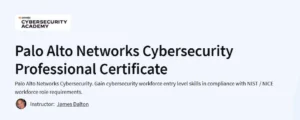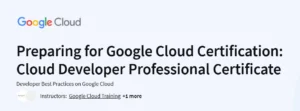What will you learn in Kubernetes in Practice Course
Deploy and manage containerized applications on Kubernetes clusters
Understand Kubernetes core primitives: Pods, Deployments, Services, ConfigMaps, and Secrets
Configure networking and load balancing with Ingress controllers and Services
Implement stateful workloads using StatefulSets, PersistentVolumes, and PersistentVolumeClaims
Automate application rollouts, rollbacks, and scaling with Deployments and Horizontal Pod Autoscalers
Secure clusters with RBAC, NetworkPolicies, and PodSecurityPolicies
Program Overview
Module 1: Kubernetes Fundamentals & Cluster Setup
⏳ 1 week
Topics: Kubernetes architecture, control plane vs. worker nodes,
kubectlbasicsHands-on: Provision a local cluster with Minikube/Kind and deploy a “Hello World” Pod
Module 2: Managing Pods & Deployments
⏳ 1 week
Topics: Pod lifecycle, ReplicaSets, Deployment strategies (Recreate vs. RollingUpdate)
Hands-on: Create Deployments, perform rolling updates, and roll back to previous versions
Module 3: Services & Networking
⏳ 1 week
Topics: ClusterIP, NodePort, LoadBalancer Services, Ingress resources
Hands-on: Expose applications via Services and configure an NGINX Ingress controller
Module 4: Configuration & Secrets Management
⏳ 1 week
Topics: ConfigMaps for config injection, Secrets for sensitive data, environment vs. volume mounts
Hands-on: Store database credentials in Secrets and inject them into application Pods
Module 5: Stateful Workloads & Storage
⏳ 1 week
Topics: PersistentVolumes, PersistentVolumeClaims, StorageClasses, StatefulSets
Hands-on: Deploy a stateful application (e.g., MySQL) using StatefulSets and dynamic provisioning
Module 6: Scaling & Auto-Scaling
⏳ 1 week
Topics: Manual vs. automatic scaling, Horizontal Pod Autoscaler (HPA), Cluster Autoscaler basics
Hands-on: Load-test a service and configure HPA to adjust replica count automatically
Module 7: Security & Access Control
⏳ 1 week
Topics: RBAC roles and bindings, ServiceAccounts, NetworkPolicies, PodSecurityPolicies
Hands-on: Lock down a namespace with restrictive RBAC rules and network segmentation
Module 8: Observability & Troubleshooting
⏳ 1 week
Topics: Logging with
kubectl logs, metrics with Prometheus, dashboards with Grafana,kubectl debugHands-on: Set up a Prometheus/Grafana stack and troubleshoot a failing Pod with logging and metrics
Get certificate
Job Outlook
Kubernetes expertise is in high demand for roles like DevOps Engineer, Site Reliability Engineer, and Platform Engineer
Widely adopted across cloud providers, microservices architectures, and enterprise CI/CD pipelines
Salaries range from $100,000 to $160,000+ depending on region and level of responsibility
Mastery of Kubernetes accelerates productivity, reliability, and scalability in production environments
Specification: Kubernetes in Practice
|
FAQs
- Basic understanding of containers (e.g., Docker) is recommended but not strictly required.
- The course introduces Kubernetes concepts and architecture step by step.
- Beginners can follow along with hands-on exercises to deploy and manage clusters.
- Familiarity with Linux commands and networking concepts helps but is not mandatory.
- By the end, learners can deploy, scale, and manage containerized applications in Kubernetes.
- Yes, the course covers deploying applications using Pods, Deployments, and Services.
- Learners practice scaling applications, rolling updates, and managing resources.
- Techniques include managing configurations with ConfigMaps and Secrets.
- Hands-on exercises demonstrate real-world deployment and cluster management scenarios.
- Advanced deployment strategies like multi-cluster setups may require additional learning.
- Yes, the course teaches monitoring Pods, nodes, and cluster health.
- Learners practice using logging, metrics, and Kubernetes commands to troubleshoot issues.
- Techniques include detecting resource bottlenecks and resolving errors in deployments.
- Hands-on exercises help learners maintain healthy and reliable clusters.
- Advanced monitoring tools like Prometheus or Grafana may require further learning.
- Yes, the course introduces networking concepts like Services, Ingress, and DNS.
- Learners practice connecting Pods, exposing applications, and managing traffic.
- Storage concepts include Persistent Volumes, Persistent Volume Claims, and dynamic provisioning.
- Hands-on exercises ensure understanding of data persistence and network connectivity.
- Advanced networking or storage strategies may require additional practice.
- Yes, the course provides practical experience aligned with real-world Kubernetes use cases.
- Learners gain hands-on skills for cluster management, deployment, and monitoring.
- Concepts learned help prepare for roles like DevOps engineer or cloud engineer.
- Projects can be used for portfolios or professional demonstrations.
- Advanced certification topics may require further study of official exam guides.





